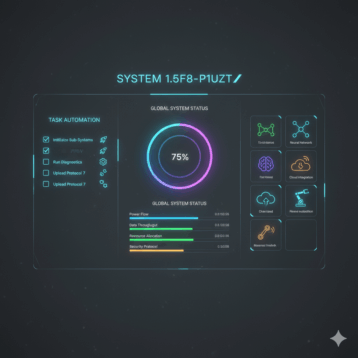
In the ever-evolving world of digital communication, texting has become a ubiquitous mode of expression, and with it comes a plethora of abbreviations and acronyms that can sometimes leave us scratching our heads.
One such abbreviation that has gained widespread usage is “JP,” but what exactly does it mean, and how can you decipher its meaning in various contexts?
Let’s delve into the intricacies of this two-letter acronym and explore its multiple interpretations.
The Primary Meanings of JP
Just Playing (JP)
One of the most common interpretations of JP in texting is “Just Playing.” This usage is often employed to indicate that the sender is not being entirely serious or is joking about something they have said. It serves as a lighthearted way to diffuse any potential misunderstandings or tension that might arise from a particular statement.
Example:
Alen: “I can’t believe you ate the last slice of pizza!”
Brain: “JP, I would never do that!”
In this exchange, Brain uses “JP” to convey that they are not being serious about eating the last slice of pizza and are simply engaging in playful banter.
Joint Project (JP)
Another prevalent meaning of JP is “Joint Project.” This usage is particularly common in professional or academic settings, where individuals or groups collaborate on shared endeavors. When used in this context, JP refers to a project that involves multiple parties working together towards a common goal.
Example:
Claudia: “Did you receive the update on the JP we’re working on?”
Draco: “Yes, I’m currently reviewing the latest revisions.”
Here, JP is used to refer to a collaborative project that both parties are involved in, likely in a work or academic setting.
Additional Interpretations Of JP

While “Just Playing” and “Joint Project” are the most widely recognized meanings of JP, this acronym can take on various other interpretations depending on the context in which it is used. Some of these alternative meanings include:
Japan (JP)
In certain situations, particularly when discussing geography or travel, JP can be used as an abbreviation for the country of Japan.
Job Posting (JP)
When discussing employment opportunities or job searches, JP may be used to denote a “Job Posting” or a listing for an available position.
Justice Party (JP)
In political contexts, JP can sometimes refer to a “Justice Party,” which is a political organization that advocates for social justice and equality.
Jurisprudence (JP)
In legal settings, JP may be used as an abbreviation for the term “Jurisprudence,” which refers to the study of law and its principles.
Jungle Party (JP)
In recent years, a more niche interpretation of JP has emerged among certain social circles, particularly among younger generations, where it is used to refer to a “Jungle Party” or a gathering held in a jungle or forest setting.
Contextual Clues and Avoiding Misunderstandings

While the versatility of JP can lead to diverse interpretations, it can also result in misunderstandings or confusion if the context is not clear. To avoid such situations, it’s crucial to pay attention to the overall conversation, the relationship between the parties involved, and the tone being used.
For instance, if two colleagues are discussing a work-related matter, and one of them mentions “JP,” it is more likely that they are referring to a “Joint Project” rather than “Just Playing.” However, if the conversation is casual and lighthearted, “Just Playing” might be the more appropriate interpretation.
Additionally, the use of proper nouns or specific terminology can provide valuable clues about the intended meaning of JP. If the conversation involves references to countries or geographical locations, JP is more likely to mean “Japan.” Similarly, if legal or political terms are being used, JP could be referring to “Jurisprudence” or a “Justice Party,” respectively.
It’s important to note that these interpretations are not set in stone, and the meaning of JP can vary based on individual preferences, regional dialects, or personal communication styles. If there is any ambiguity or confusion about the intended meaning, it’s always best to clarify with the other party to avoid misunderstandings.
Other Common Texting Abbreviations
JP is just one of many abbreviations that have become a part of the texting lexicon. Here are some other widely used texting abbreviations and their meanings:
DM: Direct Message
LOL: Laugh Out Loud
BRB: Be Right Back
IDK: I Don’t Know
AKA : Also Known As
IMHO: In My Humble Opinion
TTYL: Talk To You Later
LMK : Let Me Know
OMG: Oh My God
BTW: By The Way
FYI: For Your Information
ILY: I Love You
ROFL: Rolling On the Floor Laughing
These abbreviations serve various purposes, from conveying emotions and reactions to indicating availability or providing additional information. Like JP, their meanings can sometimes vary depending on the context and the parties involved in the conversation.
The Evolution Of Texting Language
The rise of texting and instant messaging has led to the development of a unique form of communication, one that is constantly evolving and adapting to the needs of its users. Abbreviations like JP are a testament to the ever-changing nature of this language, as new interpretations and usages emerge over time.
As technology continues to advance and new platforms for digital communication emerge, it’s likely that we will see an influx of new abbreviations and acronyms, further expanding the lexicon of texting language. The ability to adapt and understand these evolving forms of communication will be crucial for maintaining effective and meaningful interactions in the digital age.
Conclusion
In the realm of texting, JP is a versatile acronym that can take on multiple meanings depending on the context in which it is used. From indicating playfulness and humor to referring to collaborative projects or even geographical locations, JP’s interpretations are diverse and ever-evolving.
By understanding the various connotations of JP and paying attention to contextual clues, we can better navigate the complexities of digital communication and avoid misunderstandings. Additionally, familiarizing ourselves with other common texting abbreviations can further enhance our comprehension of this unique form of language.










